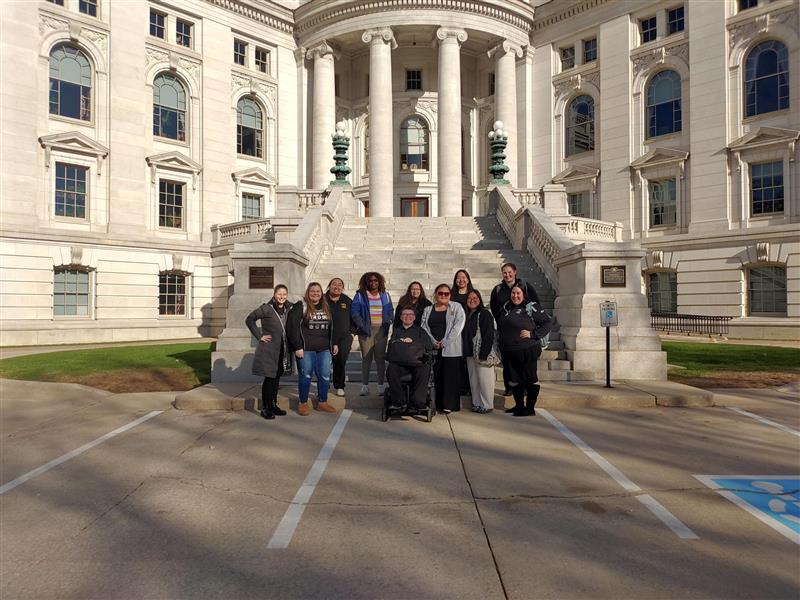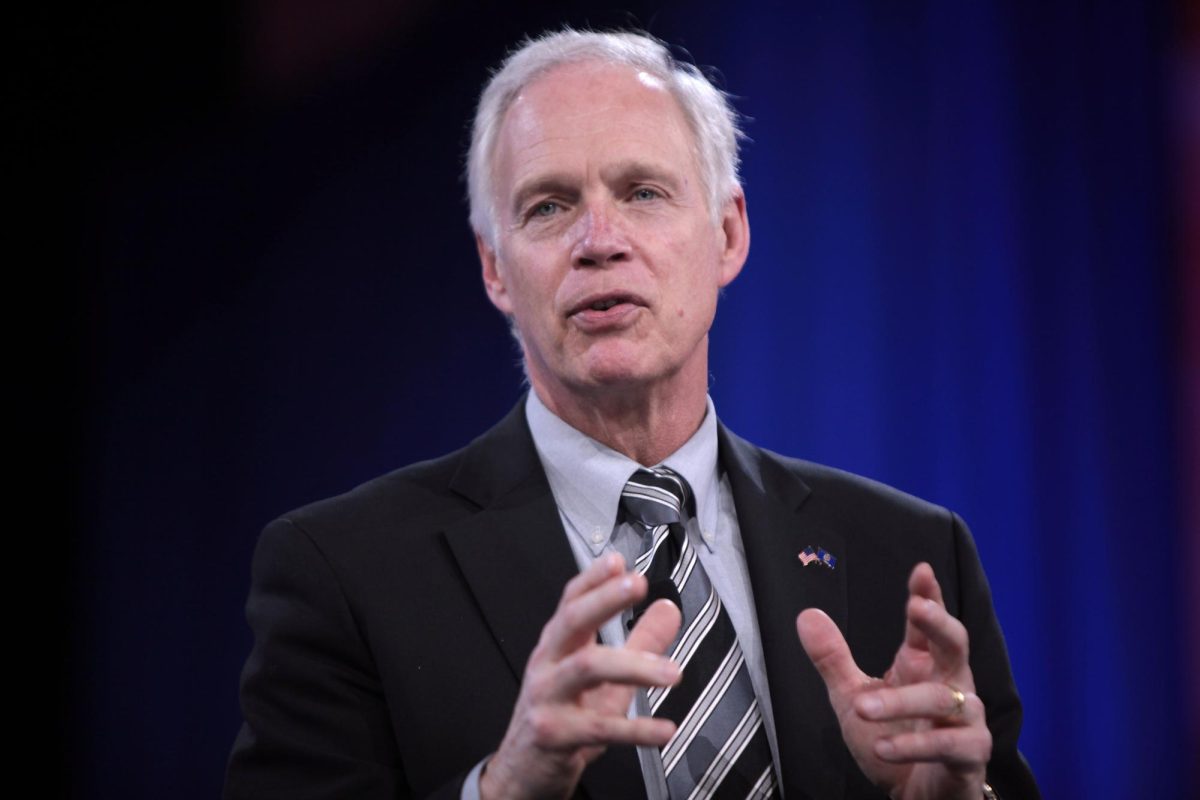TRIO Students attended the Wisconsin Association of Educational Opportunity Program Personnel (WAEOPP) Student Leadership & Advocacy Summit to advocate for TRIO programs after recent Trump administration decisions on cutting funds for the Department of Education.
Students in different TRIO programs throughout the Midwest traveled to the Wisconsin State Capitol on April 5 to learn advocacy in action through workshops and shared their experiences of being underrepresented in higher education and the impact TRIO has made in their journey.
Melissa Luedtke, treasurer of WAEOPP and former president, said for a while, professionals have solely focused on advocating with officials at Capitol Hill, when they should be working closely with local officials and state representatives who often have closer connections with federal lawmakers to highlight the impact TRIO has on students.
“TRIO professionals from Wisconsin got together and realized that, because we’re federally funded, we focus a lot at the federal level and with the Department of Education in D.C.,” Luedtke said. “Who we really need to be working with is our local officials and our state representatives because so many of our state representatives will go on to connect with federal representatives, and we just need to also let them know about all the good things that are happening in our programs.”
The TRIO program is a federally funded outreach and student support program that is designed to assist students in underrepresented backgrounds that includes first-generation college students (neither parent has completed a four-year degree), low income and individuals with disabilities.
“There are almost 11,000 students in Wisconsin being served by over 67 programs, and so they need to know that there are programs in just about every district in the United States,” Luedtke said. “What we wanted students to be able to share their stories. Get their voice and be heard.”
Highlighting the unique challenges that first-generation college students face, Hope Schaefer Kemps, an academic coach at TRIO SSS at University of Wisconsin Oshkosh spoke about the importance of advocacy and awareness for this underrepresented community.
“I think it’s important to advocate for first-generation college students because we matter, and there are so many of us,” Schaefer Kemps said. “Seeing firsthand, like the different barriers that first generation college students face with going to college and doing well in their classes and balancing like their mental health and all these other things that are important and part of your life.”
With recent events with the Trump administration, TRIO members believe students need to embrace their personal narratives and learn to get involved in civic engagement. Stacey Malacara, an academic coach at TRIO SSS at Gateway Technical College, emphasized that the power of storytelling and advocacy is how they can protect programs like TRIO, which are vulnerable to shifting political values.
“When I first started this job, or even as a student, I never thought about politics. I never thought about how it affected me cause I thought I’m good. Right?” Malacara said. “But just seeing how people make decisions about our TRIO money, you must be able to articulate and be able to talk to these people and be able to fight for your program.”
Schaefer Kemps believes the power of advocacy has a key role in creating supportive spaces and resources for underrepresented students in higher education, and that their unique experiences bring valuable perspectives that make lasting impacts.
“I think through advocacy we’re able to make changes and create programs to help support this population of students,” Schaefer Kemps said. “First-generation people have a lot to offer because of their lived experiences, which is unique compared to people that are not first generation. And so, we want to advocate for them so that they can make a difference in the world.”









